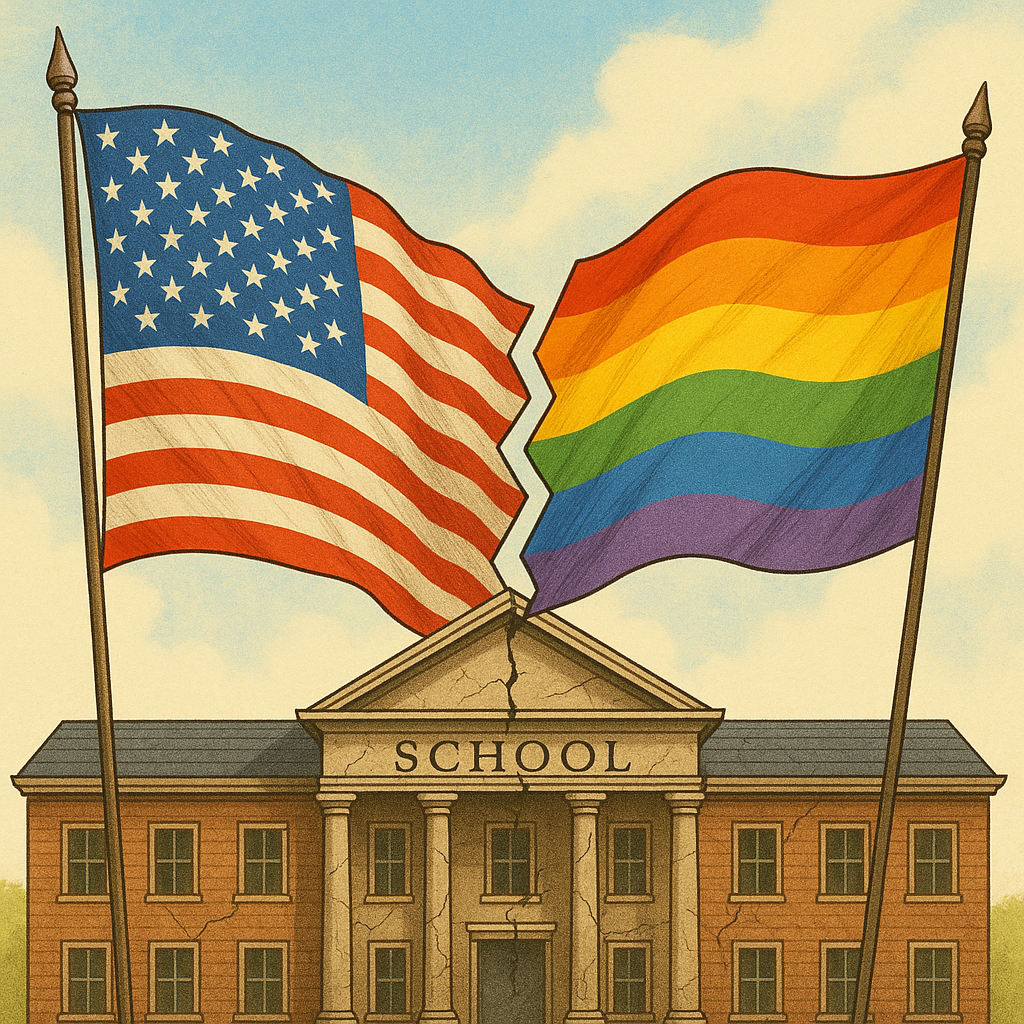
The U.S. education system once ranked among the best in the world. From the 1960s through the early 2000s, American schools regularly turned out high-achieving graduates who went on to become leaders in science, medicine, and technology. The focus in classrooms was clear: reading, writing, mathematics, science, and history. Students were expected to master foundational subjects, and public education served as a launchpad for national progress and innovation. Standardized test scores and global rankings reflected this focus. In international comparisons, the United States held competitive positions in reading and math achievement.
A Sharp Decline in Student Performance
This academic strength has weakened. In recent years, scores in math and reading have dropped at a historic rate. According to the 2022 National Assessment of Educational Progress (NAEP), nine-year-olds lost five points in reading and seven points in math in just two years. These were the largest declines since the test was introduced in the 1970s.
In 2023, reports showed that a third of eighth graders scored below basic levels in reading. Math proficiency has reached a low not seen in three decades. While COVID-19 disruptions played a role, these trends began well before the pandemic and have continued despite schools returning to in-person learning.
The Rise of Ideological Curriculum
Over the last decade, schools have increasingly adopted curricula that include social and ideological content. This includes lessons on gender identity, sexual orientation, and LGBTQ themes. These subjects are now introduced in some districts as early as kindergarten. Advocates say this fosters empathy and inclusivity. However, many parents and educators worry that it shifts attention away from essential academic skills.
When classroom time is diverted from reading and arithmetic to discussions about identity, children may not develop the basic competencies they need for future academic success. This shift in focus has sparked debates about the role of public education and whether schools are staying true to their core mission.
Developmental Concerns with Early LGBTQ Instruction
Research in child development raises questions about the appropriateness of teaching complex concepts such as gender fluidity or non-binary identity to very young children. According to a study published in the Journal of Sex Research, children under age seven process the world in concrete terms and lack the cognitive development to understand abstract social concepts.
Exposing children to advanced ideas about gender and identity before they understand basic biological differences can lead to confusion. Critics argue that early introduction of such topics may disrupt natural cognitive development and distract from the learning of core subjects.
Parental Pushback Across the Country
Parents in multiple states have begun pushing back. One high-profile case in Maryland involves parents suing a school district that required LGBTQ-themed books in elementary grades without allowing opt-outs. The case has reached the U.S. Supreme Court and could have national implications for parental rights in education.
Across the country, parents are demanding more transparency about classroom materials and greater authority in deciding what is age-appropriate for their children. The growing tension reflects a broader disagreement over the purpose of public education.
Public Opinion on LGBTQ Topics in Schools
A 2022 study by the Brookings Institution found that while most Americans support inclusive education in general, fewer than half support introducing LGBTQ-related topics in elementary school. Many believe such topics should be reserved for later grades or handled by families at home.
This gap in public support raises the question of whether current educational policies reflect the will of most parents and taxpayers, or if they are being driven by activist agendas.
Core Learning Is Being Sidelined
Instructional time is limited. The more time teachers spend on social or ideological education, the less time is available for core subjects. According to Education Week, teachers report increased pressure to include social-emotional learning and identity-focused topics. At the same time, student performance in reading and math continues to decline.
This shift in priorities can have long-term consequences. Students who fall behind in foundational subjects often struggle to catch up later, affecting graduation rates and college readiness.
Curriculum Overhaul Creates Instability
Constant changes to curriculum, especially those based on social movements rather than evidence-based learning practices, contribute to instability in schools. A 2021 review in Frontiers in Education found that frequent and ideologically motivated curriculum shifts lead to reduced academic performance, particularly in underfunded districts.
When teachers are expected to integrate new material without proper training or resources, students are the ones who pay the price. The loss of instructional consistency undermines academic growth.
This Is Not About Attacking Anyone
Criticism of current educational trends does not mean rejecting the rights or dignity of LGBTQ individuals. Every student deserves respect and safety in the classroom. The concern is about the direction and priorities of public education. Schools should be places where children develop essential academic skills that prepare them for real-world challenges.
Other Countries Are Outperforming the U.S.
Countries like Singapore, Japan, and Finland continue to outperform the United States in core academic subjects. These nations emphasize math, science, and literacy from the early grades and avoid ideological content in primary education.
They treat education as a national investment in human capital, not a venue for cultural debates. Their success shows what is possible when schools stay focused on what matters most.
A Call to Refocus
If the goal is to prepare future generations for success, American education needs a reset. We must put reading, math, science, and history back at the center of the classroom. Ideological instruction belongs in the home, shaped by family values and individual maturity. Schools need to return to their core purpose: equipping students with the tools to think critically, solve problems, and contribute meaningfully to society.
